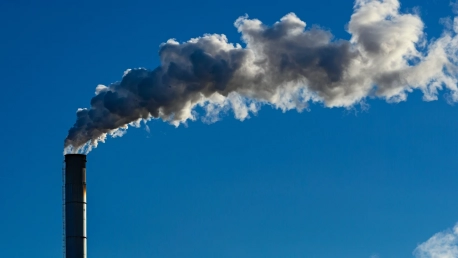NW Natural, Oregon’s largest gas utility, faces significant challenges in its efforts to transition to renewable natural gas (RNG) and reduce carbon emissions. Despite incremental progress, the company has struggled for the second consecutive year to meet its self-established targets. With a service base of over 2.5 million people, NW Natural’s reliance on RNG is critical to its carbon reduction strategy. This analysis delves into the core issues hampering NW Natural’s progress and explores the broader implications within the renewable energy transition for gas utilities. As RNG becomes increasingly central to the company’s carbon reduction efforts, examining the successes and setbacks within this endeavor offers valuable insights into the larger obstacles facing the renewable energy sector.
The Promise and Perils of Renewable Natural Gas
Renewable Natural Gas (RNG) involves capturing methane from decomposing organic matter, such as landfills, livestock operations, or wastewater treatment facilities. Methane is a potent greenhouse gas, making RNG a potentially valuable resource in mitigating climate change. Despite its promise, NW Natural reported that only 0.91% of its natural gas in 2023 came from RNG, falling well short of its 5% target. This underperformance follows similar disappointments in 2022 and 2021, highlighting the substantial difficulties in scaling RNG supplies.Market conditions and policy limitations are primary impediments to NW Natural’s RNG acquisitions. The availability of RNG is limited, and the costs are notably higher than those of conventional natural gas. Gretchen Blum, NW Natural’s public information officer, emphasized the need for a more established market and regulatory certainty to support the company’s RNG goals. Even with these challenges, NW Natural managed a fivefold increase in RNG procurement in 2023 compared to the previous year, demonstrating some level of progress despite falling short of targets. However, the gap between current achievements and established targets reveals the significant effort still required to make RNG a viable cornerstone of NW Natural’s carbon reduction efforts. This mixed progression indicates that while advances are being made, they may not be sufficient to meet long-term climate goals solely through RNG.
Evaluating the Feasibility of RNG as a Sole Strategy
Environmental advocates and industry experts are increasingly questioning the sufficiency of RNG as the sole strategy for reducing carbon emissions. Bob Jenks, executive director of the Oregon Citizens Utility Board, pointed out that despite substantial efforts, RNG still constitutes less than 1% of NW Natural’s system. This significant disparity emphasizes the need for alternative strategies to meet stringent climate goals effectively. Utilities in other regions are adopting diversified approaches to energy transition, which could serve as models for NW Natural. For instance, Vermont Gas in New England assists customers in financing heat pumps and promotes electrification, aiming to reduce gas emissions effectively.These integrated strategies are seen as more holistic solutions to the complex issue of carbon reduction, suggesting that a broader suite of measures, including energy efficiency and electrification, might be necessary for NW Natural to consider. The experiences of other utilities underscore the challenges of relying solely on RNG and highlight the potential benefits of a multi-pronged approach. As such, NW Natural may need to broaden its strategies to include enhanced energy efficiency programs, increased investment in electrification, and the adoption of new technologies that complement RNG in reducing overall emissions. This consideration is critical in creating a more resilient and adaptable energy strategy that can overcome current limitations.
Market and Regulatory Challenges
NW Natural’s struggle to meet RNG targets is compounded by broader market and regulatory challenges. The RNG market is still in its nascent stage, with limited supply and high costs presenting significant barriers to widespread adoption. Moreover, the historical reliance on conventional natural gas infrastructure further complicates the transition process, requiring substantial investments and systemic changes. This context highlights the multifaceted nature of the challenges NW Natural faces, as market forces and regulatory frameworks play pivotal roles in shaping the feasibility of transitioning to RNG.Externally, regulatory and legal challenges also loom large. NW Natural had initially aligned its strategy with Oregon’s Climate Protection Program, aimed at imposing strict greenhouse gas reduction targets by 2050. However, a legal challenge by fossil fuel companies, including NW Natural itself, has put the program on hold. This pause has stalled significant support for renewable energy projects and energy efficiency retrofits, adding another layer of complexity to NW Natural’s emission reduction efforts. The interplay between regulatory environments and the company’s strategic goals illustrates the necessity for navigating both policy landscapes and market conditions effectively to achieve long-term sustainability.
The Push for Electrification
Amid rising pressures from policymakers and regulators, many gas utilities, including NW Natural, have been promoting RNG as a viable solution. However, Charlie Spatz of the Energy and Policy Institute criticized this focus, describing it as a distraction from the more comprehensive transition needed toward electrification. Electrification of buildings and homes is increasingly seen as a crucial step in achieving substantial emission reductions. This shift represents a broader perspective within the renewable energy dialogue, advocating for a combination of strategies to address different facets of the emission challenges.The shift towards electrification involves not just regulatory support but also consumer-facing initiatives, like financing options for heat pumps and other electric appliances. For NW Natural, adopting a similar strategy could mean re-evaluating its current infrastructure and investment plans. The focus would shift from merely increasing RNG supplies to crafting a more multifaceted strategy that incorporates both RNG and electrification. By diversifying its approach, NW Natural could potentially accelerate its progress toward meeting its carbon reduction goals, leveraging various pathways to enhance environmental outcomes while considering economic feasibility.









